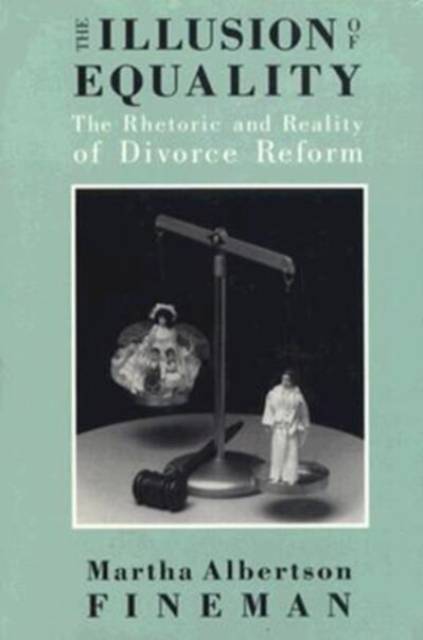
- Afhalen na 1 uur in een winkel met voorraad
- Gratis thuislevering in België vanaf € 30
- Ruim aanbod met 7 miljoen producten
- Afhalen na 1 uur in een winkel met voorraad
- Gratis thuislevering in België vanaf € 30
- Ruim aanbod met 7 miljoen producten
Zoeken
The Illusion of Equality
The Rhetoric and Reality of Divorce Reform
Martha Albertson Fineman
Hardcover | Engels
€ 108,45
+ 216 punten
Omschrijving
How do "no-fault," "gender-neutral" divorce reforms actually harm the lives of women and children they are designed to protect? Focusing on the language and symbols of reform, Martha Fineman argues that by advocating measures based on equality of treatment rather than of outcome, liberal feminists disregarded the socioeconomic factors that simultaneously place women at a disadvantage in the market and favor their taking on primary domestic responsibilities. She traces in persuasive detail the detrimental effects of equality rhetoric in shaping divorce law -- such as the legal separation of parents' and children's interests; equality replacing need as the prime criterion for settlements; and the increase of state intervention into family life. More than a critique, this book is an incisive argument for adopting outcome-oriented measures and a valuable overview of the pitfalls of uncritically implementing any rhetoric as social policy.
Specificaties
Betrokkenen
- Auteur(s):
- Uitgeverij:
Inhoud
- Aantal bladzijden:
- 262
- Taal:
- Engels
Eigenschappen
- Productcode (EAN):
- 9780226249568
- Verschijningsdatum:
- 15/09/1994
- Uitvoering:
- Hardcover
- Formaat:
- Genaaid
- Afmetingen:
- 162 mm x 236 mm
- Gewicht:
- 453 g

Alleen bij Standaard Boekhandel
+ 216 punten op je klantenkaart van Standaard Boekhandel
Beoordelingen
We publiceren alleen reviews die voldoen aan de voorwaarden voor reviews. Bekijk onze voorwaarden voor reviews.








